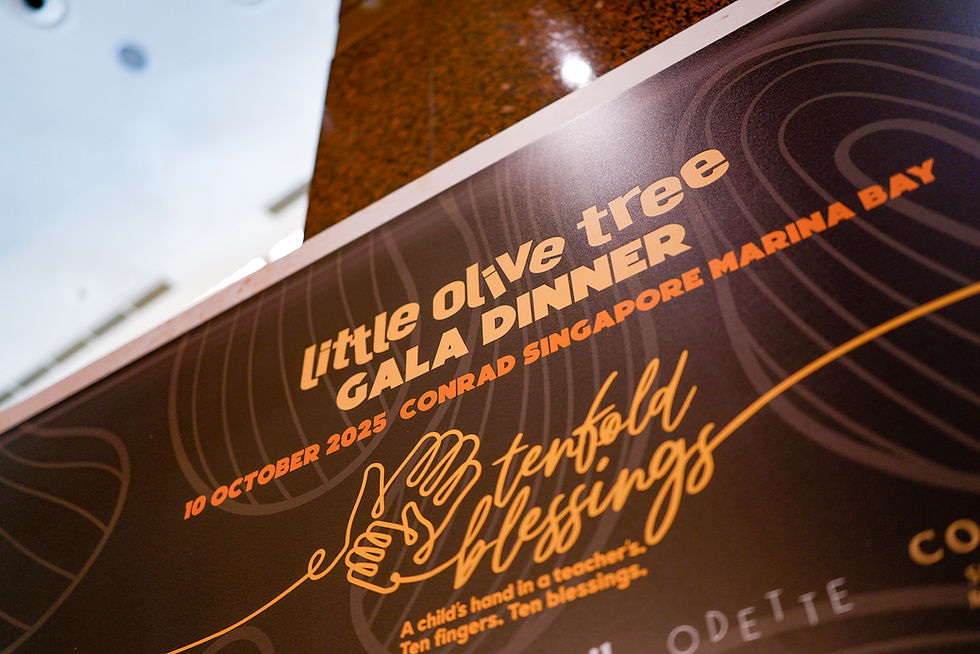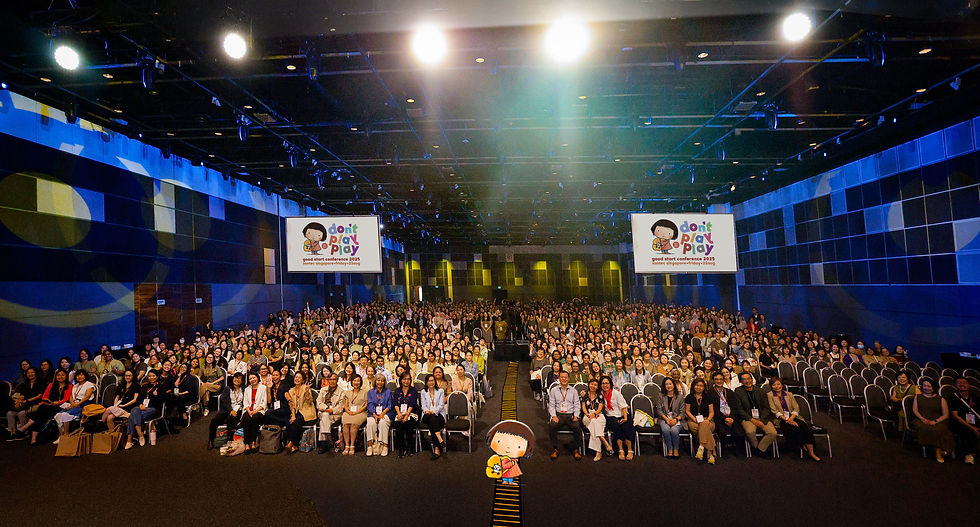The Unremarkable Work of ESP
- Presbyterian Preschool Services
- Mar 19, 2024
- 4 min read
Updated: Apr 3, 2024
We are currently seeking funding support for our Educational Support Programme (ESP). Click the button below to support our endeavour.
Our Educational Support Programme exists for one reason: for every child who comes through our doors to grow and glow. Despite having the term "Programme" in its name, ESP is more than that. Instead, it is a journey and a commitment to walk with the children with additional needs alongside their families while they are with us in our schools.
When it comes to the realm of early intervention, there are strategies, methods and training. But at the heart of it all, there are no magic formulas, no quick fixes and no guaranteed successes.
Sometimes, life is just what it is and we desire to walk with families in need as long as we have the opportunity and ability to. Hence, we like to refer to our work in early intervention as an “unremarkable work”.
Why “Unremarkable”?
Unremarkable means “not particularly interesting or surprising”.
This might seem to be an odd word selection for the field of early childhood, let alone, special education since we are working with children, especially those with needs. In fact, working with children is often considered a noble calling. At Little Olive Tree by Presbyterian Preschool Services, we desire to see that one day, it is no longer particularly interesting or surprising for children with additional needs to join us in our mainstream classrooms. We hope that this practice will be so common that children and families will not struggle to find a preschool that will help them grow and glow.
We desire to see that one day, it is no longer particularly interesting or surprising for children with additional needs to join us in our mainstream classrooms. We hope that this practice will be so common that children and families will not struggle to find a preschool that will help them grow and glow.
We hope that one day, people will no longer consider the work with children with additional needs as “remarkable”. Instead, it is so normalised that it is totally unremarkable.

The Unremarkable Work
The work we do through our Educational Support Programme is work that is probably both similar and dissimilar from what other education providers out there provide.
However, beyond the strategies, methods and techniques, we believe what sets us apart is our commitment to journey with children with additional needs. Here are three ways we desire to pursue the unremarkable work:
1. Sitting in the Mud with the Child

We are not interested in journeying with children only if they show promise in progressing. We recognise that every encouraging moment that we observe in the child’s life is accompanied by many other ordinary, frustrating, stress-inducing moments that demand patience, love, graciousness and kindness from us. We accept that this is the reality of life often times – that life can be painful and ugly in spite of our best efforts. While we live for the hope that the child will grow and glow eventually, what the child needs from us most of the time is for us to simply sit in the mud with them through their tantrums and frustrations until one day, they grow.
At Little Olive Tree, we commit to sitting in the mud with the children through the most unremarkable of days. Sometimes, this is the best way we can honour the child and their Maker.
2. Believing that Each Child’s Trouble is Worth Troubling For
Meeting parents who are interested in enrolling their child into our Educational Support Programme for the first time is always an emotional experience. By the time our conversation happens, most of these parents have already been turned down by more than one school and are often at their wits’ end on how they can help their child.
Raising a child is challenging enough without the additional obstacles that comes with raising a child with additional needs. It is always heart wrenching for us to hear about how their child is termed as the trouble-maker that other teachers cannot handle.
The reality is that nurturing children is messy and difficult work. Every child brings along their own sets of trouble. At Little Olive Tree, we believe that as long as we have the capabilities to support them, every child is trouble worth troubling for.
The reality is that nurturing children is messy and difficult work. Every child brings along their own sets of trouble. At Little Olive Tree, we believe that as long as we have the capabilities to support them, every child is trouble worth troubling for.
3. Rallying the Village around the Child and Family

Finally, all progress no matter how remarkable is pointless if it is not translated across the various contexts the child lives in. Hence, we are not merely interested in observing the improvement in a child’s behaviour within the context of the classroom and preschool, as important as this is. Instead, we want to journey with families, and the village that surrounds the child (be it extended family, the church community or even neighbours) such that that child’s progress can be observed across all contexts of life.
At Little Olive Tree, we want to walk with families and the village that will continue to journey with the child long after they have graduated from preschool.
Closing Words
It is much easier to offer a programme that is committed to providing strategies and methods. However, our years of experience in the realm of early intervention work has taught us that true lasting work demands commitment beyond just a “programme”.
It takes time and effort to journey with others. This is the more challenging and arduous work. This is costlier work.
We hope that as we embark on this endeavour of providing at least 10% of our enrolment capacity for children with additional needs, you will come along to support us. We welcome financial donations of any amount. In the event that financial giving is not possible, do share our stories and our effort with others around you. We are currently seeking funding support for our Educational Support Programme (ESP). Click the button below to support our endeavour.







Comments